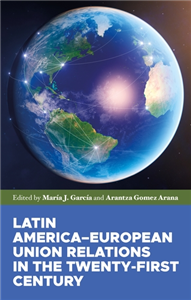The future of western capitalism?
Global and local transitions
by Alberta Andreotti, David Benassi, Yuri Kazepov
Since its emergence at the end of the seventeenth century, industrial capitalism as a specific form of social organisation has set recurrent challenges to its own persistence, and until today, it has proved to be successful to develop new ways of accumulation based on its capacity of adaptation. Is this process of transition now accelerating or reaching an end point? This book is a critical exploration of capitalism in transition, bringing together cutting edge, world renowned scholars who reflect from different disciplinary points of view. This collection engages with the primarily Western themes of welfare capitalism and social fragmentation. Structured over three parts, the book analyses; the transformations of welfare societies and capitalism with a focus on South European welfare states and their (in)capacity to tackle poverty; the transformation of work and migration with a special attention to informality and the question of social rights; and the transformation of cities and their urban movements. Economic sociology and critical urban studies are the main disciplinary influences, though the authors and likely readers lie beyond these traditional boundaries.














